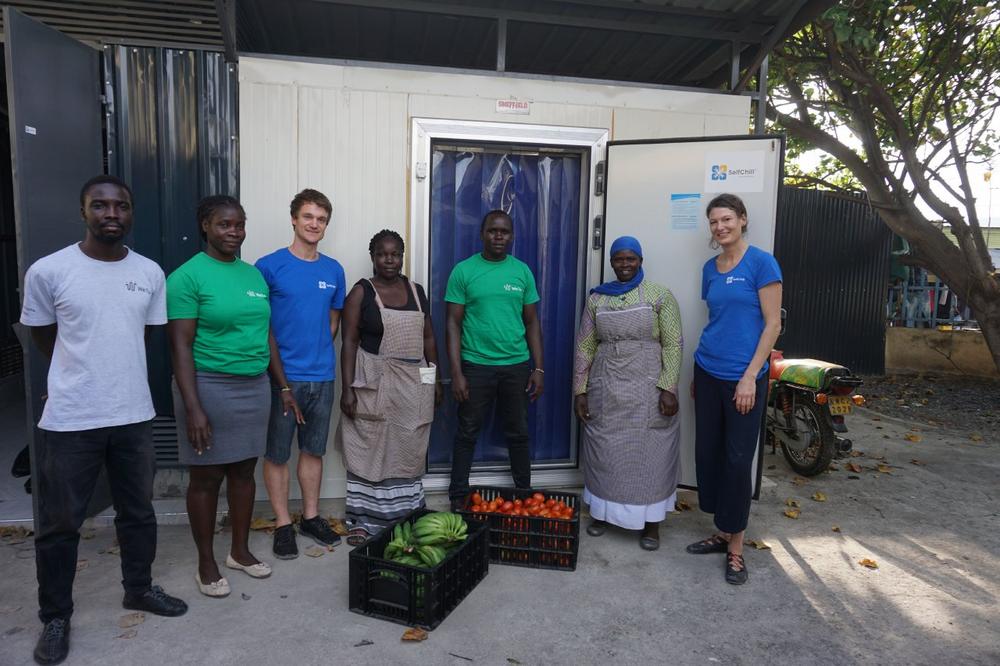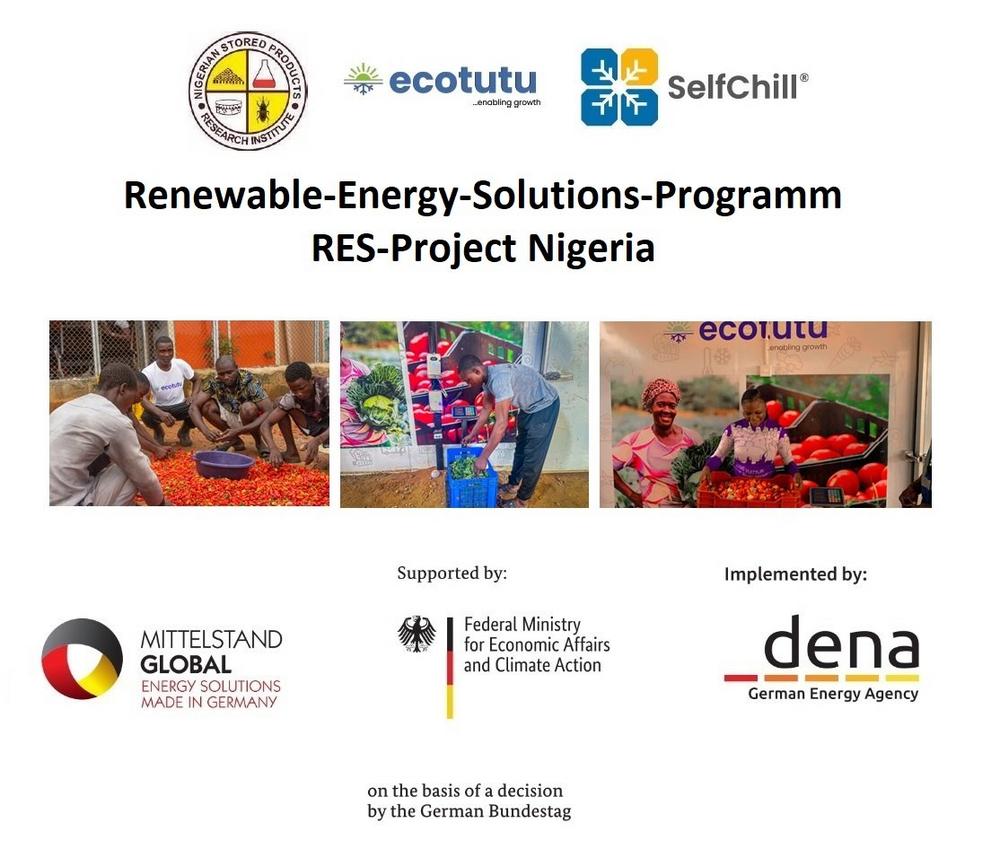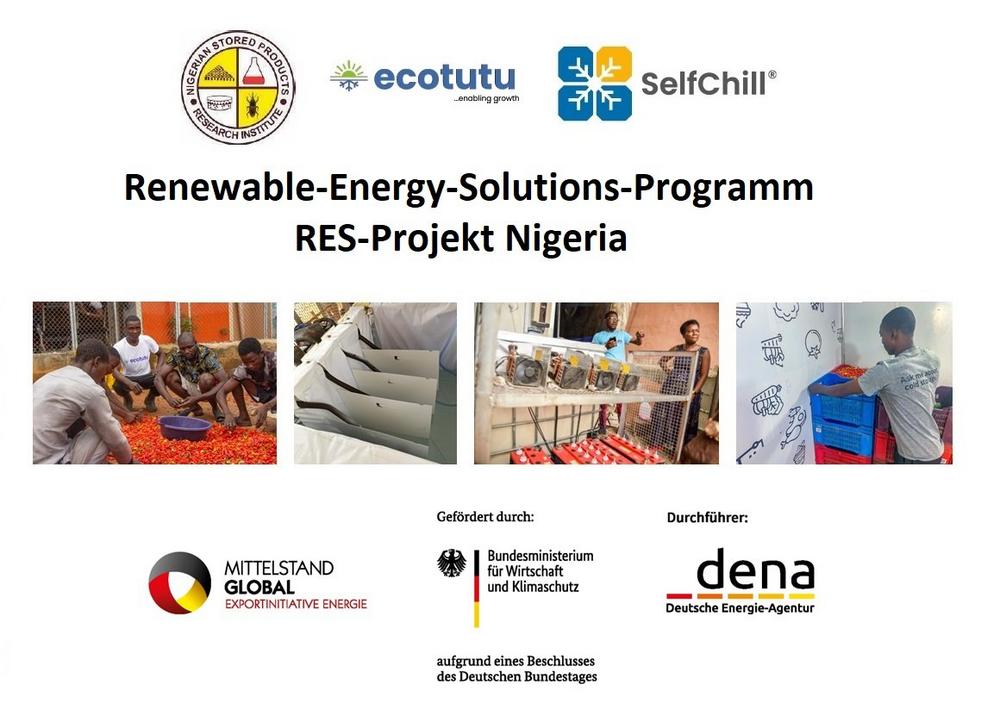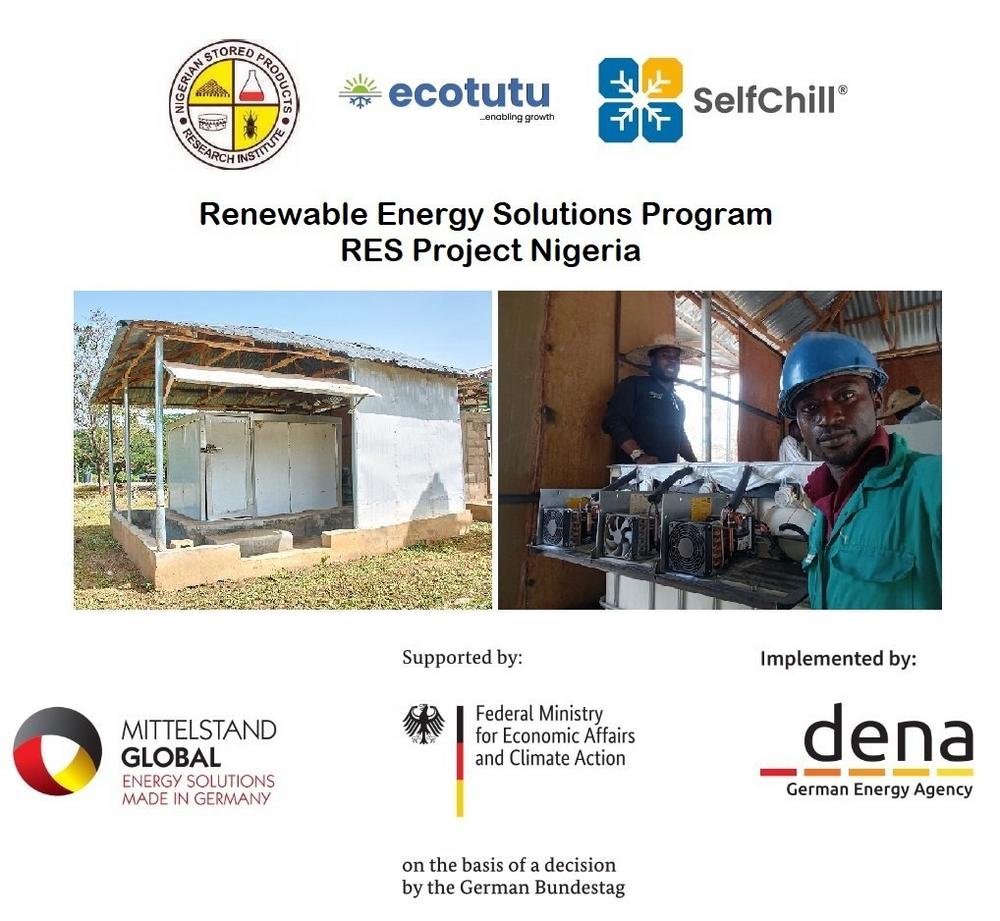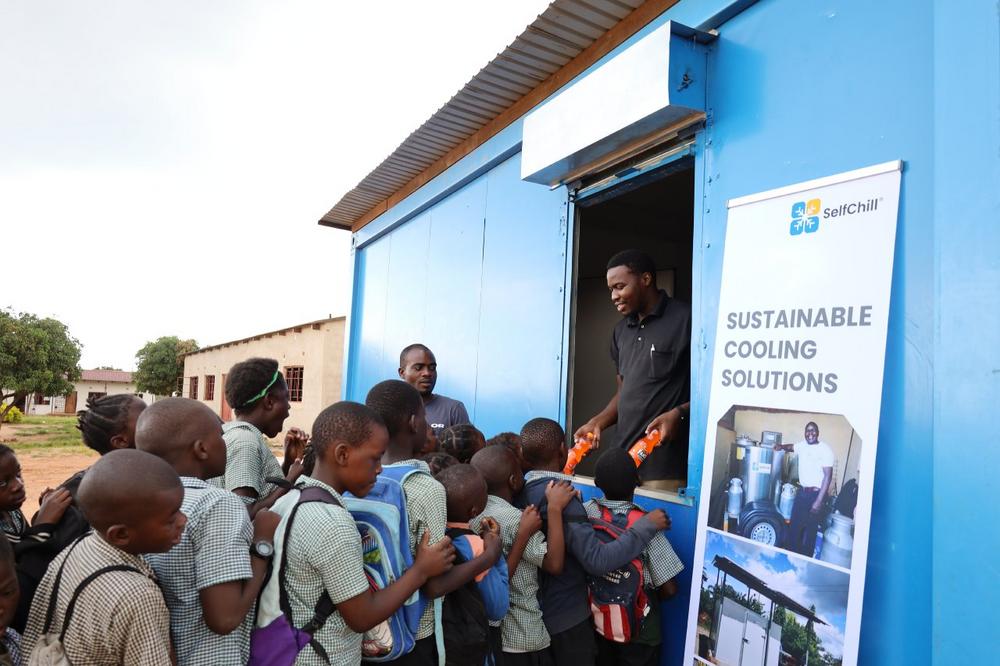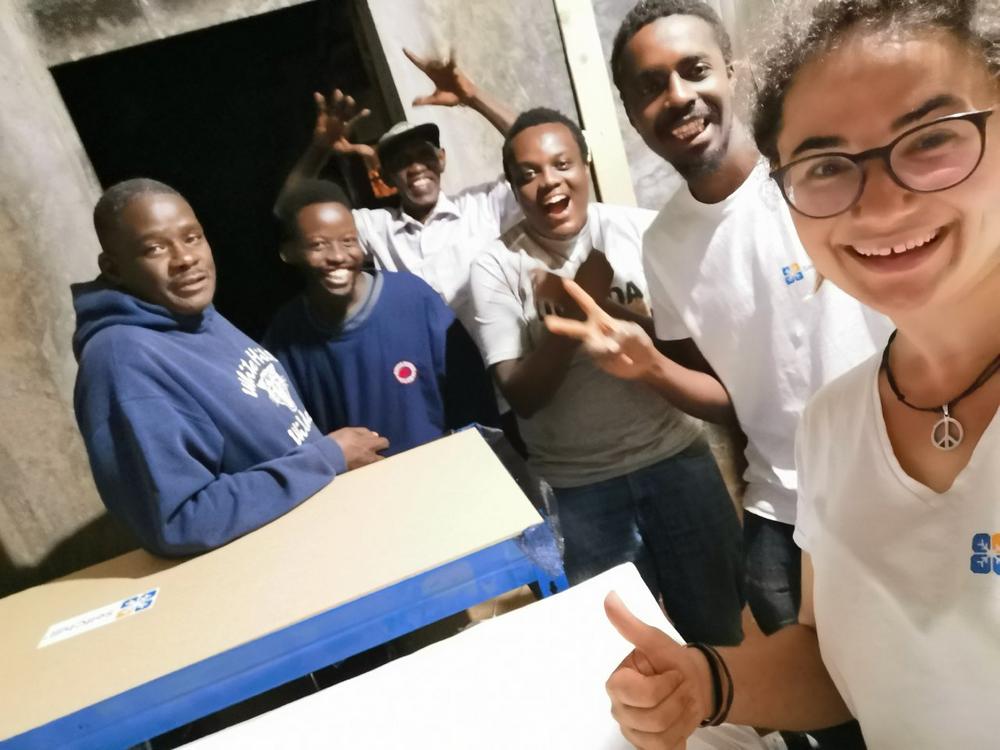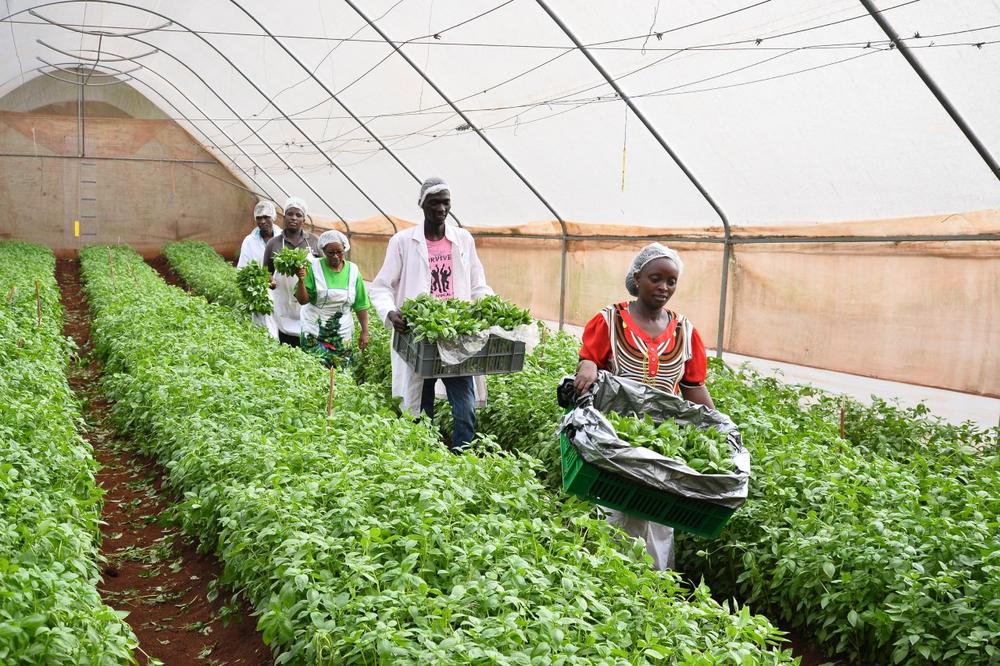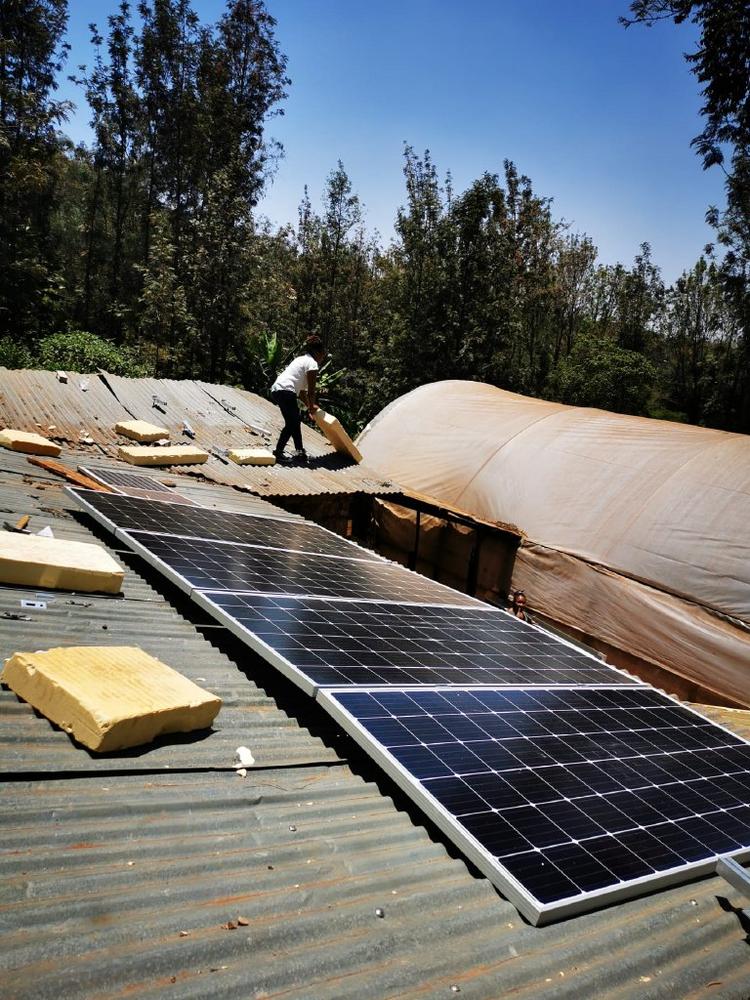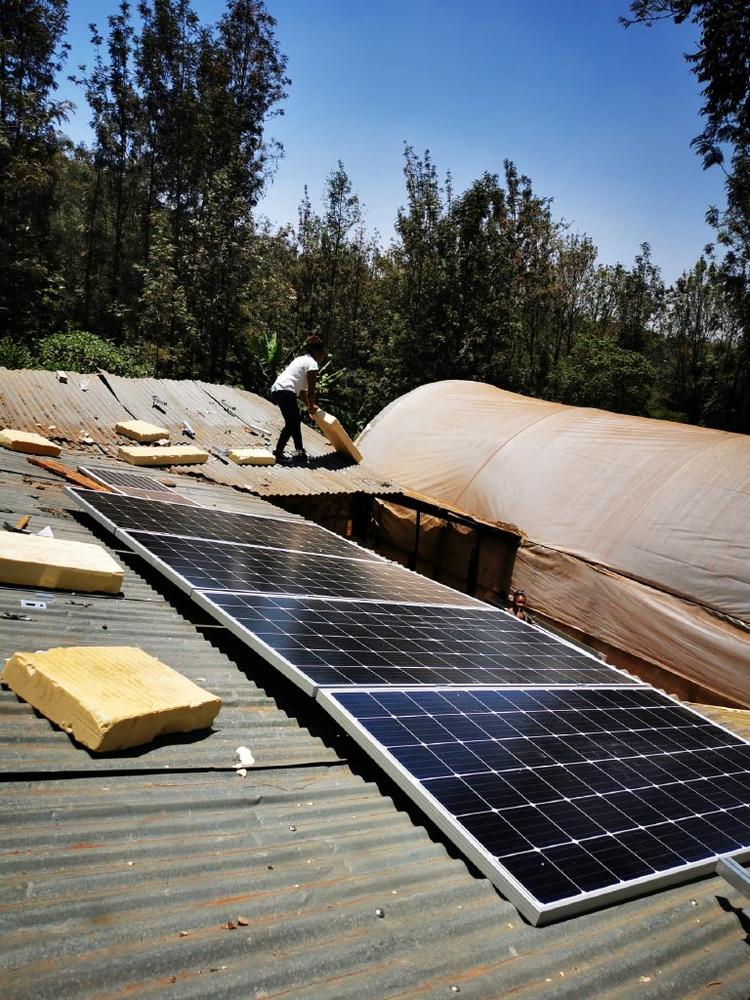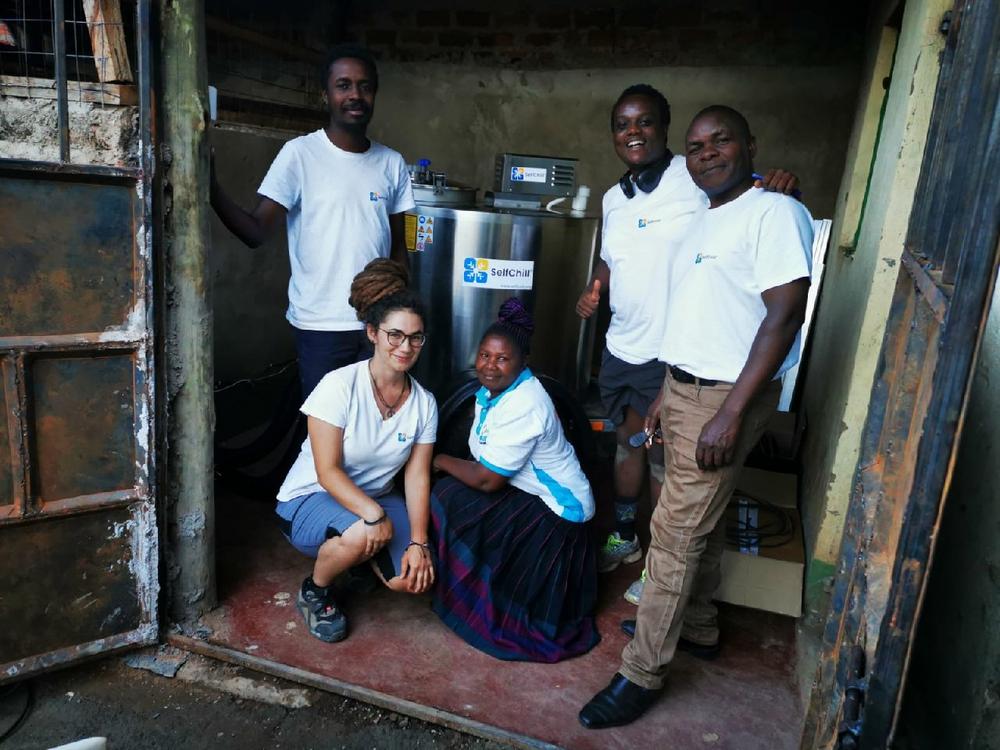-
Solar Cooling Conference & Tour 2025
The Solar Cooling Conference & Tour 2025 will take place on April 14-15 in Kisumu, Kenya, bringing together experts, businesses, and policymakers to explore the role of solar-powered cooling solutions in sustainable agriculture and rural development. Organized by SelfChill in collaboration with WeHub! Victoria Limited, this event combines expert-led discussions with exclusive site visits to showcase innovative solar cooling technology in action. Driving Innovation in Solar Cooling On April 14, the conference in Kisumu will provide attendees with: Expert insights into solar cooling technologies and their impact on sustainable development. Best-case studies of solar-powered cooling projects across Africa. Panel discussions on agricultural value chains and the role of refrigeration in reducing…
-
Enhancing Resilience and Efficiency: Addressing Post-Harvest Losses Nigeria’s Largest Perishable Food Market through Innovative Solar Cooling Rooms
In a remarkable effort to address Nigeria’s significant post-harvest losses and promote sustainable agriculture, SelfChill and Ecotutu have allied to introduce their revolutionary solar-powered storage room at the bustling Mile 12 International Market in Lagos. This momentous launch event was graced by 34 distinguished participants from both the public and private sectors. The proceedings commenced with the respected German General Consul, Mr. Weert Börner, inaugurating the event, setting the stage for what promises to be a game-changing solution in the fight against post-harvest losses. RES-Project Nigeria: A Catalyst for Change The RES Project Nigeria is supported by the German Federal Ministry for Economic Affairs and Climate Action as part of the…
-
Verbesserung der Widerstandsfähigkeit und Effizienz: Bekämpfung von Nachernteverlusten in Nigeria durch innovative solare Kühlräume
In einem bemerkenswerten Versuch, die erheblichen Nachernteverluste in Nigeria zu bekämpfen und eine nachhaltige Landwirtschaft zu fördern, haben sich SelfChill und Ecotutu zusammengeschlossen, um ihren revolutionären solarbetriebenen Lagerraum auf dem belebten "Mile 12 International Market" in Lagos vorzustellen. An dieser bedeutenden Einführungsveranstaltung nahmen 34 hochrangige Teilnehmer aus dem öffentlichen und privaten Sektor teil. Zu Beginn der Veranstaltung eröffnete der angesehene deutsche Generalkonsul in Nigeria, Herr Weert Börner, die Veranstaltung und gab damit den Startschuss für eine bahnbrechende Lösung im Kampf gegen Nachernteverluste. RES Projekt Nigeria: Ein Katalysator für den Wandel Das RES-Projekt Nigeria wird im Zuge des Renewable-Energy-Solutions-Programms der Exportinitiative Energie des Bundesministeriums für Wirtschaft und Klimaschutz gefördert. Diese Initiative…
-
Breaking Ground in Solar-Powered Cold Storage: Introducing SelfChill in Nigeria
Nigeria’s agricultural landscape predominantly relies on smallholders‘ work, who reside in rural, off-grid areas that lack essential electricity infrastructure. The alarming reality is that post-harvest losses can reach more than 50% in the absence of cooling facilities. Within this critical context and in the pursuit of sustainable agriculture and environmentally friendly technologies, SelfChill® has emerged as an encourager of innovation by reshaping post-harvest management in Nigeria by adopting solar-powered cold rooms. SelfChill in Nigeria Background Nigeria’s first SelfChill Cold Room was installed at the Nigerian Stored Products Research Institute (NSPRI) in Ilorin in December 2021. This state-of-the-art facility is currently being used for innovative research, and its multifaceted potential extends…
-
Solar cooling technology secures food supply in Zambia and Tanzania
Over the course of two years, the implementation of technical training programs, local production line establishment, and installation of demonstration systems for cooling milk, cheese, and vegetables on small farms have contributed to the transfer of knowledge and technology to Tanzania and Zambia. Many regions of East Africa have optimal climatic conditions and fertile soil for local agriculture and livestock farming. Unfortunately, in rural areas, there is often a lack of refrigeration facilities to keep fruits, vegetables, and dairy products fresh for longer. Solar-powered cooling systems can provide a solution, but there is a lack of local expertise. Moreover, the distribution of foreign technologies is hindered by high transport costs,…
-
SelfChill technology from Phaesun and Solar Cooling Engineering awarded world’s best solar-powered cooling solution
The most efficient and reliable solar-powered cold room for small-scale farmers in Africa comes from the Allgäu region in Germany. The companies Phaesun GmbH and Solar Cooling Engineering GmbH from Memmingen have developed the SelfChill technology in recent years to operate cooling solutions with solar energy. Now, solar-powered cold rooms around the world have been tested as part of the Off-Grid Cold Chain Challenge. The SelfChill technology, which is used in Kenya and other African countries, was chosen as the test winner and thus wins the Global Leap Award. In Africa, Latin America and Asia, a large proportion of agricultural produce is grown by smallholder farmers in rural areas. Often,…
-
Die SelfChill Technologie der Unternehmen Phaesun und Solar Cooling Engineering wurde als weltbeste solar betriebene Kühllösung ausgezeichnet
Der effizienteste und zuverlässigste solarbetriebene Kühlraum für Kleinbauern in Afrika kommt aus dem Allgäu. Die Unternehmen Phaesun GmbH und Solar Cooling Engineering GmbH aus Memmingen haben in den letzten Jahren die SelfChill Technologie entwickelt, um mit Solarenergie Kühllösungen zu betreiben. Nun wurden im Rahmen der Global Leap Initiative solarbetriebene Kühlräume auf der ganzen Welt getestet. Zum Testsieger wurde die SelfChill-Technologie gekürt, die unter anderem in Kenia Anwendung findet. In Afrika, Lateinamerika und Asien wird ein Großteil der landwirtschaftlichen Produkte von Kleinbauern in ländlichen Gebieten angebaut. Oft gibt es in den Gegenden keine zuverlässige Stromversorgung; konventionelle Kühlmöglichkeiten können nicht oder nur unzuverlässig betrieben werden. Bis zu 40% der landwirtschaftlichen Erzeugnisse verderben…
-
Solar power provides cooling for fish, herbs and milk in Kenya
As part of the PV Cool Kenya project, the Allgäu-based solar company Phaesun, together with the start-up Solar Cooling Engineering and Kenya’s Strathmore University, implemented innovative technologies for solar-powered cooling systems in Kenya. In the process, three solar-powered cooling systems were commissioned together with farmer cooperatives, which now cool agricultural products such as milk, fish, vegetables and herbs. The installations were accompanied by technical training at Strathmore University’s Solar Center. The rural population in Kenya is largely dependent on agriculture. Still, much of the agricultural produce is produced by smallholder farmers in rural areas, who often have no or very limited access to the electricity grid. These farmers therefore have…
-
Solarstrom sorgt für Kühlung von Fisch, Kräutern und Milch in Kenia
Im Rahmen des Projektes PV Cool Kenya hat das Allgäuer Solarunternehmen Phaesun gemeinsam mit dem Start-up Solar Cooling Engineering und der kenianischen Strathmore University innovative Technologien für solar betriebene Kühlsysteme in Kenia implementiert. Dabei wurden gemeinsam mit Bauernkooperativen drei solar betriebene Kühlsysteme in Betrieb genommen, die nun die landwirtschaftlichen Erzeugnisse wie Milch, Fisch, Gemüse und Kräuter kühlen. Begleitet wurden die Installationen mit technischen Trainings am Solarcentre der Strathmore Universität. Die ländliche Bevölkerung in Kenia ist größtenteils von der Landwirtschaft abhängig. Nach wie vor wird ein Großteil der landwirtschaftlichen Produkte von Kleinbauern in ländlichen Gebieten erzeugt, die oft keinen oder nur sehr begrenzten Zugang zum Stromnetz haben. Diese Bauern haben daher…
-
Kenyan farmers improve productivity with SelfChill solar cooling solutions
The first SelfChill solar cooling solutions for Kenyan farmers were set into operation for cooling herbs, milk and fish in September and October 2021. The German solar technology provider Phaesun GmbH in cooperation with Solar Cooling Engineering UG and local partners SunTransfer Kenya and Strathmore University Nairobi have successfully implemented SelfChill solar cooling solutions in Kenya within the project “PV Cool Kenya”. The SelfChill concept focuses on the use of key components for scalable solar cooling solutions for agricultural products. The core component is an ice reservoir formed out of several SelfChill Cooling Units that compensates fluctuations in solar energy or cooling capacity. Cooling systems can be created in different…

